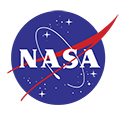White House Science and Technology Priorities for the FY 2016 Budget
The Office of Management and Budget (OMB) and Office of Science and Technology Policy (OSTP) released the Science and Technology Priorities for the FY 2016 Budget on July 18, 2014.
Under Mutiagency R& D Priorities section, this OMB and OSTP memo specifies that, 'In the FY 2016 Budget, agencies should balance priorities to ensure resources are adequately allocated for agency-specific, mission-driven research, including fundamental research, while focusing resources, where appropriate, on the multi-agency research activities that cannot be addressed effectively by a single agency.' Among those specified priorities, the following are relevant to the USGCRP's U.S. Carbon Cycle Science Program and stakeholders:
Earth observations: 'Earth observation data serve as the foundation for services that protect human life, property, the economy, and national security, as well as advancing fundamental understanding of the Earth system. Enhanced interagency coordination is required to ensure adequate observational coverage for public services and Earth-system research and to ensure complementarity and integration of the resulting data. Agencies should participate in the coordination efforts ofthe National Science and Technology Council 's (NSTC) Committee on Environment, Natural Resources, and Sustainability (CENRS) and align their R&D investments with the 2014 National Plan for Civil Earth Observations, and comply with the Executive Order on Open and Machine Readable Data.'
Global climate change: 'Agencies should advance the goals and objectives of the 2012-2021 U.S. Global Change Research Program (USGCRP) Strategic Plan, as well as the complementary science agenda that underpins the President' s Climate Action Plan. In improving the nation's ability to understand, assess, predict and respond to global change, agencies should prioritize activities that strengthen the scientific basis for, as well as the development and use of, actionable science, information, and related tools needed to prepare for and reduce climaterelated risks.'
R&D for informed policy-making and management: 'A diverse range of agency missions (e.g. natural resource management protecting health and the environment) benefit from R&D that strengthens the scientific basis for decision-making. Both mission-centered agencies and R&D agencies should focus on user-driven information and tools to ensure science investments more directly support decision-making.'
Also,
In regard to research tools and infrastructure, the memo states: '....Agencies should support the research tools and infrastructure needed to ensure that U.S. science and engineering remain at the leading edge of discovery. Proposals for development, construction, and operations costs must be fully justified and balanced against funding for research activities and operations of existing facilities. In supporting tools and infrastructure, agencies should look for opportunities to leverage resources from other agencies and the private sector. OSTP and OMB encourage agencies to consider the best practices for Federal facility partnerships identified in the Science and Technology Policy Institute's recent Best Practices for Federal Research and Development Facility Partnerships....'




